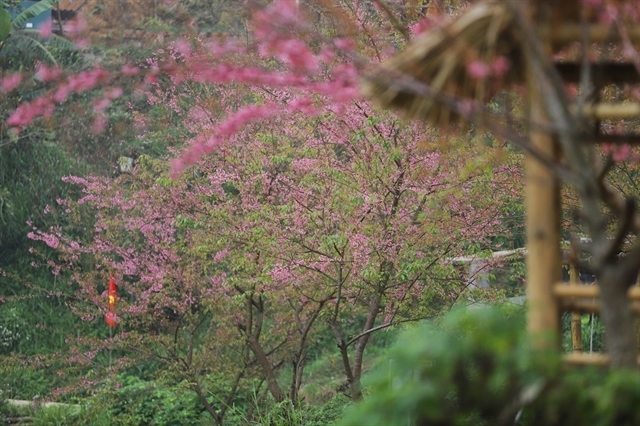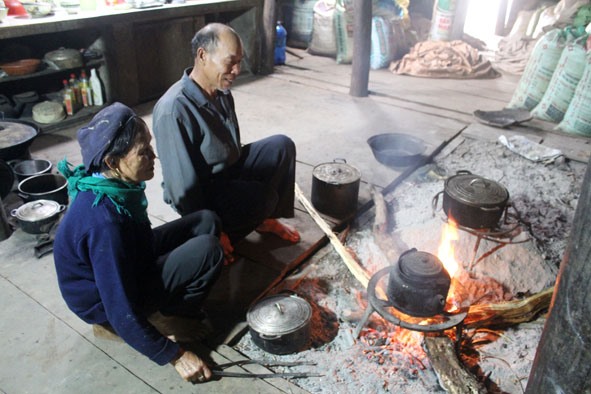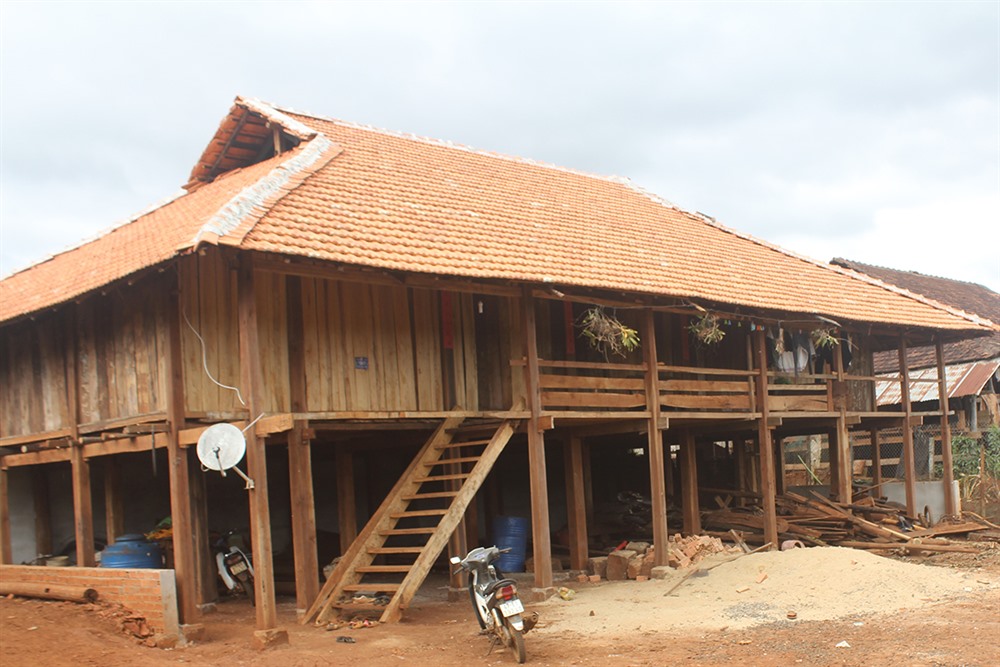 Features
Features

The Nùng An people, also called the Nùng people, who reside mostly in Quảng Hòa Village, in the Central Highland’s Province of Đắk Lắk, have worked to preserve their traditions after moving to their new land to build new lives.
 |
| Toasty: Hoàng Văn Pèng and his wife warm up on a cold day. - Photo baodaklak.vn |
by Nguyễn Thảo and An Vũ
The ethnic Nùng An people, also called the Nùng people, who reside mostly in Quảng Hòa Village, in the Central Highland’s Province of Đắk Lắk, have worked to preserve their traditions after moving to their new land to build new lives.
After 30 years of ups and downs, the houses maintain a distinctive spirit, as a particular treasure of these people.
National spirit
Tam Điền Hamlet has around 114 households, while Quảng Hòa Village has an aggregation of 57 households surrounded by vast plantations of coffee and rubber.
“Quảng Hòa residents are 100 per cent from the Nùng An ethnic minority, who migrated to the village in 1987, and consider it their second home,” said Hoàng Đình Tân, chief of Tam Điền Hamlet.
Most stilt houses here have a plain and imposing beauty with the traditional architectural style of the Nùng ethnic group.
“The wooden staircases are put on the left of the house and, following Nùng people’s beliefs, the stairs are odd numbers, which is done for good luck,” Tân added.
Pouring out some hot tea, Nông Văn Thòn, 62, a villager, said from generation to generation, these houses have become a special feature in the spiritual and material lives of the Nùng An people.
“My family’s stilt house was rebuilt two years ago, and it cost over US$25,000. Inside the house, from the arrangement of the altar, to the place to greet the guests, kitchens, and each bedrooms demonstrates the customs and habits of Nùng people.”
The houses are built with the same layout, with a huge yard in the front, as a place to dry farm produce, for family gatherings and children to play.
The most common feature of the houses is the stove in the main room. It is not only used to cook and for warmth, but for Nùng people, the stove brings good fortune. The basement is used to store equipment and farming tools.
 |
| Up high: The houses keep their traditional features. - Photo baodaklak.vn |
Community
Thòn continues his story beside the fire, “The house is like our souls, kind and honest. Houses here have the owners’ fingerprints. They also motivate us to get through hardship and tough times.”
The house of Hoàng Đình Tân, chief of Tam Điền hamlet, has had the same structure for over 30 years. The only modification has been to the roof.
“Our lives are getting better and better. The poverty rate is only 1.9 per cent. Each year, a household can earn more than VNĐ400 million ($17,000) from growing coffee, wheat, rubber and pepper. We are capable of building modern houses, but we still live in traditional houses. We want to keep them for our children,” he said.
He also enjoys introducing local culture and traditions to any visitors.
Hoàng Văn Pèng also maintains the specific architectural features of the Nùng people.
His house has five rooms, 56 pillars and one staircase. On the main door a piece of red paper is attached to chase away spirits. The stove is in the centre of the home.
Nông Văn Minh, 46, has just restored his house after 23 years living in it. He said he is more comfortable in stilt houses and does not want to build a concrete house even though he can.
According to La Bế Thủy Trang, deputy chairman of the hamlet’s people’s committee, there are 12 ethnic groups living in the hamlet, with the Tày and Nùng making up nearly 90 per cent.
In recent years, as people become more affluent concrete houses are starting to replace the traditional stilt houses.
“We take pride in preserving and maintaining our houses. It is also our way to promote tourism, beside the northern festivals, and home-brewed wine of the Tày people in Ea Tam Hamlet,” she said. VNS




